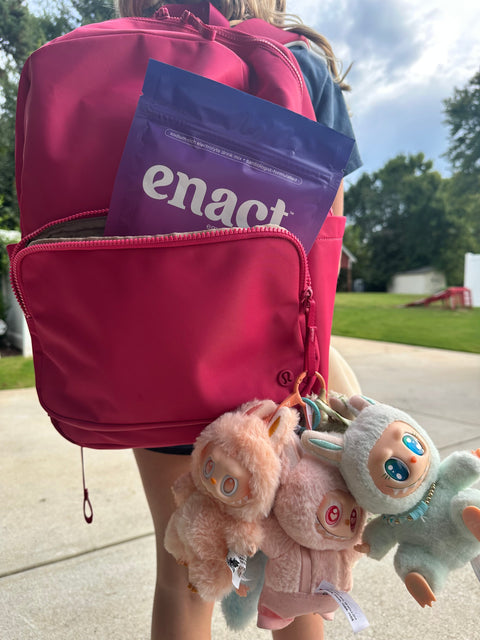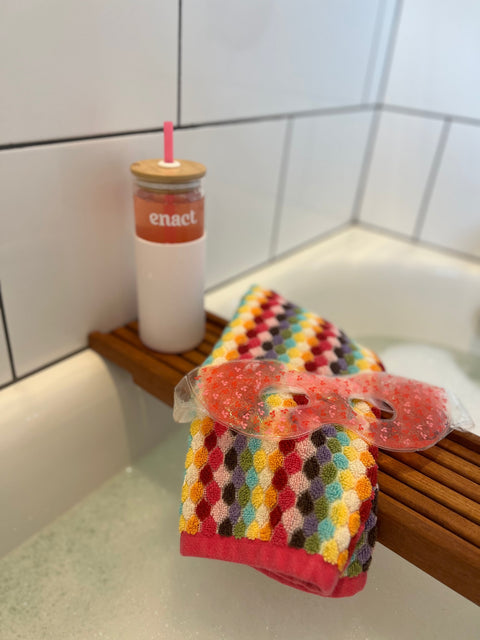Understanding POTS in the College Environment
Unlike high school, college requires more self-management. Early morning lectures, long treks across campus, late nights, and social obligations can exacerbate POTS symptoms. Common challenges include:
-
Walking long distances between classes
-
Standing in lines for food or events
-
Heat in crowded lecture halls or dorms
-
Irregular meal schedules
-
Limited sleep and stress from exams
Recognizing these challenges is the first step toward creating a plan for balance and success.
Strategies for College Students
1. Prioritize Hydration and Nutrition
Hydration is one of the most effective strategies for managing POTS symptoms. Students should:
-
Keep a large reusable water bottle handy throughout the day.
-
Use clean label hydration mixes or electrolyte packets without dyes or artificial additives.
-
Maintain a consistent salt intake if recommended by a healthcare provider.
-
Stock dorm rooms with healthy, ready-to-eat snacks like trail mix, protein bars, and fruit cups for quick energy.
2. Optimize Your Living Space
-
Ask for a dorm room with easy access to elevators if walking stairs is difficult.
-
Keep cooling fans or air filters to manage heat triggers.
-
Use compression garments when symptoms are severe.
3. Manage Academic Demands
-
Break studying into shorter, manageable sessions.
-
Use technology (apps, alarms, calendars) to combat brain fog and track assignments.
-
Take advantage of online lecture recordings if available.
4. Practice Self-Advocacy
In college, self-advocacy is key. Learn how to explain POTS in simple terms to professors, roommates, and peers. This reduces stigma and ensures support when symptoms flare.
Strategies for Professors
1. Understand POTS Basics
Professors don’t need medical expertise, but awareness helps. Symptoms like dizziness, fatigue, and brain fog are real barriers, not excuses. Empathy and flexibility make a big difference.
2. Allow Flexible Accommodations
-
Permit students to sit near exits for easy breaks.
-
Allow water bottles and snacks during class.
-
Provide lecture notes or recordings when brain fog makes note-taking difficult.
3. Communicate Openly
Encourage students to share their needs early in the semester. A quick conversation can prevent misunderstandings and foster trust.
Strategies for Campus Support Offices
Most colleges have disability or accessibility offices where students can request formal accommodations. A support plan might include:
-
Extended test-taking time in a quiet space
-
Priority class registration to schedule classes later in the morning
-
Housing accommodations (first-floor dorms, single rooms if needed)
-
Access to elevators or mobility assistance for large campuses
Managing POTS in Social and Campus Life
College life isn’t just academics. Students with POTS should:
-
Choose low-intensity clubs and activities (debate, art, student government).
-
If participating in exercise, try swimming or recumbent cycling instead of high-impact workouts.
-
Pace social events—plan rest before and after to conserve energy.
-
Carry hydration for late-night events or campus outings.
Building a Support Network
Managing POTS in college requires collaboration:
-
Students take the lead in managing their health and advocating for needs.
-
Professors provide flexibility in the classroom.
-
Campus disability offices ensure accommodations are consistent.
-
Peers and roommates can offer support when symptoms flare.
Daily Tips for College Students with POTS
-
Morning Routine: Start the day with hydration, electrolytes, and a protein-rich breakfast.
-
In Class: Change positions, stretch discreetly, and avoid standing too long.
-
Between Classes: Schedule downtime to recharge.
-
Study Habits: Use timers for focused study sessions, then rest.
-
Evenings: Prioritize sleep—symptoms are harder to manage when tired.
College with POTS requires planning, but it is absolutely manageable. Managing POTS in College: Strategies for Students, Professors, and Campus Support highlights hydration, clean label hydration, flexible accommodations, and self-advocacy as cornerstones of success. By building supportive systems and pacing themselves, students with POTS can thrive both academically and socially.




Comments (0)
There are no comments for this article. Be the first one to leave a message!